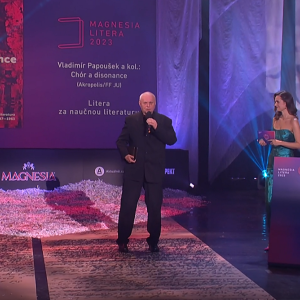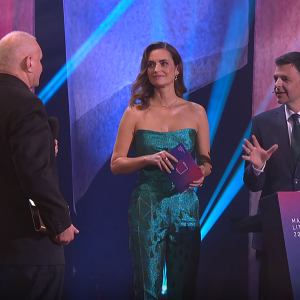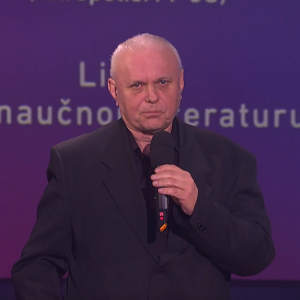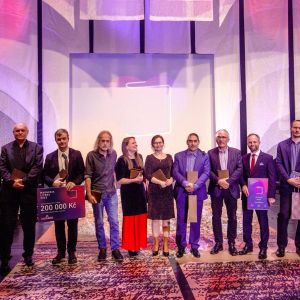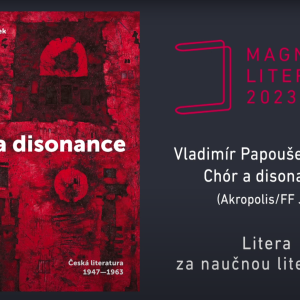The book CHÓR A DISONANCE won the Magnesia Litera 2023
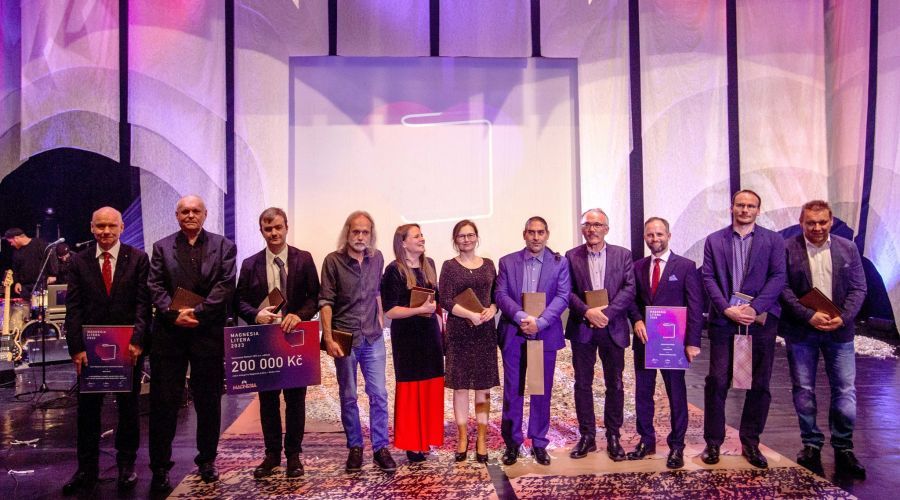
The book Chór a disonance [Chorus and Dissonance] was awarded the Magnesia Litera 2023 award in the category of Litera for Non-Fiction. The book is a loose continuation of the previous three-volume series Dějiny nové ("nové") moderny [History of the New (‘New’) Modernism] and part of a long-term project of the Centre for Research on Newer Czech Literature and Literary Theory at the USB Faculty of Arts.
The team of authors, which consists of literary and art historians and theoreticians from the Faculties of Arts of the University of South Bohemia and Charles University, headed by Professor Vladimír Papoušek, won the Magnesia Litera Czech Literary Award in the category of Litera for Non-Fiction Literature with their book Chór a dissonance. The mission of this prize, which has been awarded annually since 2002 by the Litera Association, is to support and popularise quality books. The collective monograph Chór a dissonance was published at the end of 2022 by Akropolis Publishing House (Filip Tomáš) in cooperation with the Centre for Research on Newer Czech Literature and Literary Theory of the USB Faculty of Arts. The graphic design was done by Stará škola studio.
The award ceremony took place on 17 April 2023 at the New Stage of the National Theatre in Prague. The award was received by Professor Vladimír Papoušek. Congratulations to authors!
About the book Chór a disonance from the website of Magnesia Litera:
The transformation of the social and cultural atmosphere after the coup d'état in February 1948 was also reflected in the unique sphere of literature in all its role and breadth of interest. The authors of this remarkable monograph have placed the cultural and ideological context of the period in a broader context. The result is a useful interdisciplinary synthesis, a testimony to the society-wide manipulation in the name of socialist realism and the vision of a better classless society. The interest of the authors focuses not only on official literature and its creators but also notes the activities of defiant individuals or groups who sought free expression and autonomous creative gesture. The transformation of individual literary genres – lyric, epic and drama – is not neglected.
